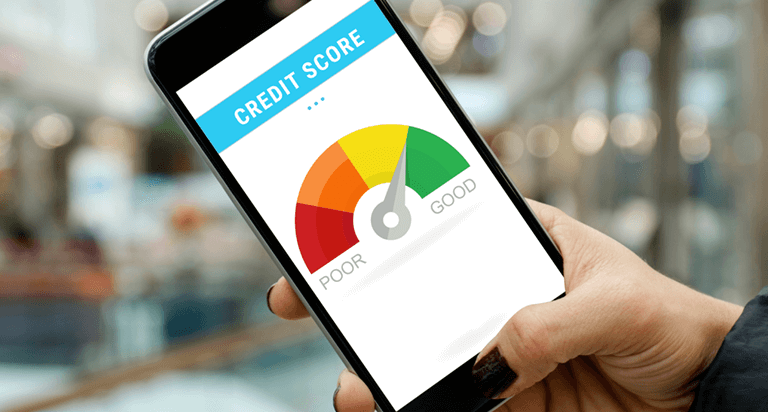How Your Credit Impacts the Homebuying Process?
Highlights:
- When it comes to buying a home, your credit scores and financial situation can play a big role in the process.
- Be aware of your income, employment, debt-to-income ratio and credit scores before beginning the homebuying process.
- Lower credit scores may mean you are offered higher mortgage interest rates and you may be required to pay for private mortgage insurance (PMI).
Whether you're a first-time homebuyer or a housing market veteran, buying a house is an exciting milestone. But the homebuying process can overwhelm even the most experienced homeowners.
It's important to understand how your credit scores and finances impact the homebuying process. Keep these factors in mind when preparing to buy a home.
Getting your finances in order
Start off your homebuying process with a look at your overall financial situation.
- Confirm your income and employment status. Mortgage lenders will consider your income and employment status when evaluating you for a loan. Your gross income (total income before taxes) also plays a role in helping you estimate how much of a mortgage you can afford.
- Calculate your cash savings. You'll also need a significant amount of cash set aside to cover a down payment. Twenty percent of a home's purchase price is considered the standard down payment for most lenders. However, the exact amount you'll need depends on your unique situation.
- Consider outstanding debt. It's not impossible to purchase a home with existing debt, but it can make the process more complicated. Mortgage lenders consider your debt-to-income (DTI) ratio as part of their evaluation process. This refers to the total amount of debt payments you owe every month divided by your gross monthly income. As a rule of thumb, it's best to make sure your DTI ratio is below 36% before applying for a mortgage.
- Check your credit. Your credit scores also have a major impact on the homebuying process. They can directly affect the amount of mortgage you're able to secure and help lenders set your interest rates and other loan terms. They may also impact the size of the down payment a lender will require, which will determine whether you have to pay for private mortgage insurance (PMI) and, if so, how much.
How much house can you actually afford?
Your income and debt load can impact the amount you'll be able to pay for a house. The Federal Housing Administration estimates that most homebuyers can afford to budget about 31% of their gross monthly income toward housing expenses if they have debt and 43% of their gross monthly income if they have no debt. You may qualify for more money than this when applying for a mortgage, but be careful about spending more than you can reasonably afford.
It's also important not to max out your housing budget on mortgage payments alone. Keep in mind you will also need to plan for property taxes, homeowners insurance and other expenses each month, the cost of which will vary based on your location.
What are your financing options?
Most homebuyers don't have hundreds of thousands of dollars set aside to buy a house with cash. Instead, they rely on mortgage lenders to finance their home purchase over time. Mortgages are made up of three different components:
- The loan type is determined by factors like the size of loan, who is providing it and whether the loan is part of a government program. The type of loan you choose will have a direct impact on your down payment and insurance needs.
Your finances directly impact how much money you can borrow for a given property. Lenders will look at your income, employment and DTI ratio when determining what sort of loan to offer you. Mortgage lenders also consider your credit scores when assessing the likelihood you'll pay the loan back as agreed.
- The interest rate is a percentage used to calculate the price you pay to borrow money. In the case of a mortgage, it's paid to your lender over time, in addition to paying back the principal amount of your loan. Your interest rate is often closely tied to your credit scores. Generally speaking, higher credit scores can help you qualify for lower interest rates and save money over the life of your loan.
- The loan term defines how much time you have to repay your loan—usually 15, 20 or 30 years. Loans with a shorter term have higher monthly payments, but also generally have lower interest rates and cost less overall. Loans with a longer term may have lower monthly payments but higher interest rates, leading to higher overall cost.
Mortgage types
There are many different types of mortgages available. Each one is designed for a different scenario and different type of lender, but here are the most common:
- Conventional mortgages account for the majority of mortgage loans. They are often more affordable than other options and could save you money in the long run due to their favorable terms and interest rates. However, they may also be harder to secure than other loan types. Conventional mortgages generally require credit scores of at least 620.
- FHA loans typically require lower down payments and are available to borrowers with lower credit scores. FHA loans also come with mortgage insurance already built into the cost of the loan, regardless of the down payment amount. That means borrowers who are unable to come up with a 20% down payment will not incur additional fees for PMI the way they might with conventional loans. Overall, these loans may be more accessible to first-time homebuyers and others whose financial situation is strained. However, they also can cost homebuyers more in the long run due to higher interest rates.
- Special program loans, such as VA and USDA loans, offer financing to borrowers who meet certain eligibility requirements. While VA loans are available to veterans, active service members and surviving spouses, the USDA loan program is offered exclusively to borrowers who have low or medium incomes and live in rural areas. There are also state and local loan programs designed for low- to middle-income borrowers and first-time homebuyers, as well as other categories of borrowers such as public service employees.
Your credit scores may affect which of these mortgages you can qualify for and the terms of your loan.
Sometimes, a credit score in the 600 range could translate to about half a percentage point more in interest than a credit score in the 700 range. It may seem like a small difference, but you could end up paying hundreds or thousands of dollars more over the life of your loan thanks to a slightly higher interest rate.
Planning for the down payment
In addition to exploring your mortgage options, it's important to plan ahead for a down payment. Made as an up-front cash payment—typically at least 20 percent of the home's sale price—a down payment gives you immediate equity in the home while you work to pay off your mortgage over time.
Your credit scores may affect how much you'll be required to pay as a down payment. Having higher credit scores may give you some flexibility in how much you need to pay up front. On the other hand, lower credit scores may mean you must pay a larger down payment.
Private mortgage insurance (PMI)
Along with mortgage rates and down payments, credit scores could affect the PMI premium you pay, if required. PMI insures the lender in case you are unable to make payments — also called defaulting — on your loan. Banks and other lenders may require PMI if your down payment is less than 20 percent of the purchase price.
When it comes to the homebuying process, remember:
Your credit scores and overall financial situation can significantly impact the homebuying process. Lower credit scores may limit how much money you can borrow and could lead to higher interest rates or PMI premiums.
Before you begin the homebuying process, check your credit reports and credit scores to get an idea of our credit health, as well as to review the information being reported by lenders and creditors. You can create a myEquifax account to get six free Equifax credit reports each year.
Allow yourself enough time to address any information on your credit reports you believe may be inaccurate or incomplete. Some advance planning may make a big difference when it's time to purchase a home.

Sign up for a credit monitoring & ID theft protection product today!
For $19.95 per month, you can know where you stand with access to your 3-bureau credit report. Sign up for Equifax CompleteTM Premier today!



